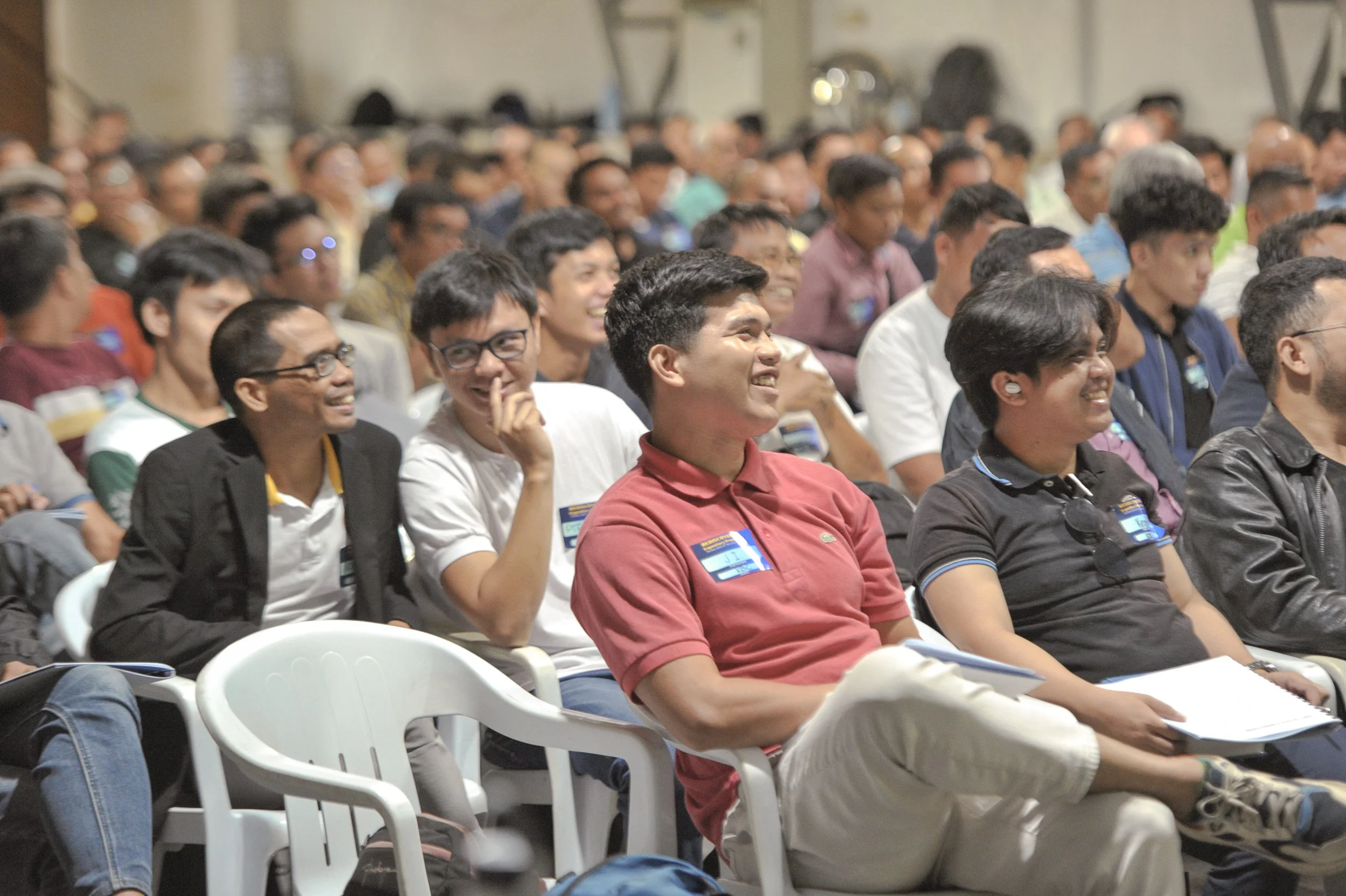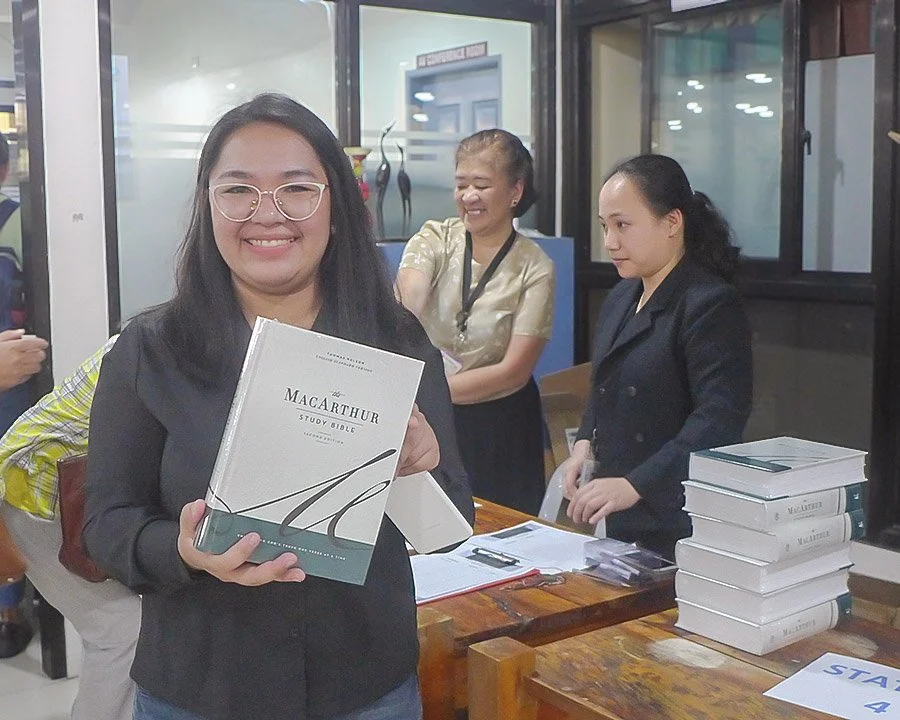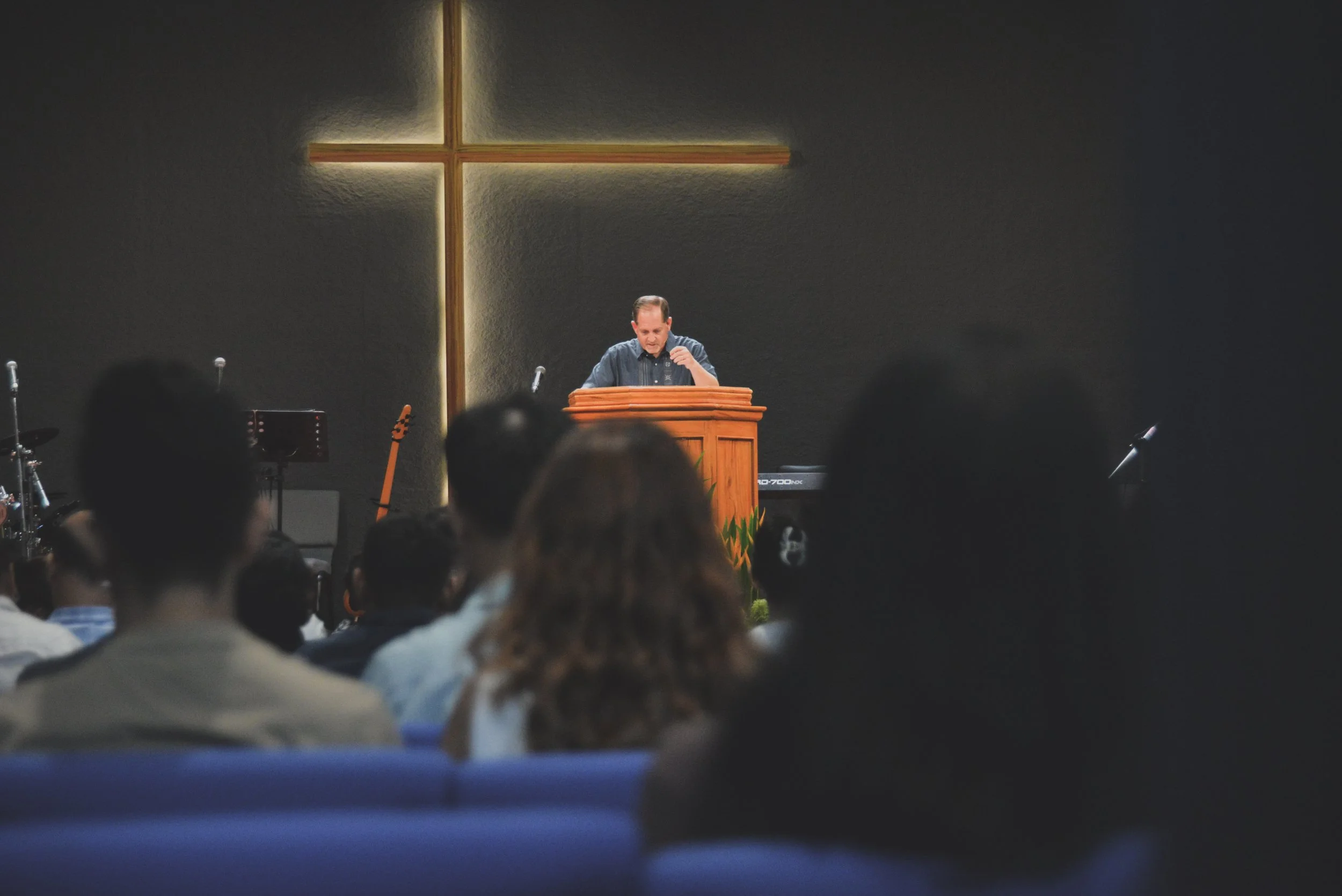Philippines
The Expositor’s Academy
MEMBER SCHOOL
Number of Graduates: 346 | Churches Impacted: 406
To serve churches in the Philippines and Asia by providing theological training that develops biblical knowledge, Christ-like character, and biblical ministry.
MISSION
KEY DETAILS ON THE EXPOSITOR’S ACADEMY
About
-
We exist to raise up faithful expositors and mature church members. Expositors who love God, His Word, and His church and members who love worshipping God, serving each other, and reaching the lost.
-
Train pastors and aspiring pastors in expository preaching
Train church members to faithfully live for God and serve each other
Train and send approved church members as church planters and missionaries
-
We have weekly classes that are offered in-person and online, as well as intensive one week modular classes that meet multiple times a year. Our student's assignments are submitted and graded through Canvas, which also provides their class notes and resources. Our preaching students preach at least eight sermons from five genres. In addition to teaching these men ministry skills, they also take a discipleship lab each semester for accountability and character development. Local church members are taught foundational bible courses to equip them to serve in the church and to develop an appetite for expository preaching.
Training
-
Expository Preaching and Pastoral Ministry Diploma: A three-year program for pastors, aspiring pastors, and bible teachers.
TEA Equip Certificate: A two to three year part-time course for church members that teaches foundational classes such as, Bible Study Methods, Old and New Testament Surveys, Doctrine Survey, and various electives.
Biblical Counseling Certificate: A one to two year program for pastors and church members who desire to grow in biblical soul care.
-
TEA began in 2008 when Sean Ransom started teaching a group of students at Greenhills Christian Fellowship in Ortigas Center, Manila. Over time, the training expanded to Christ’s Commission Fellowship in both Alabang and Cavite, as well as The Church of the Triumphant Christ and Greenhills Christian Fellowship East in Cainta.
In 2012, TEA broadened its reach beyond Luzon by offering its first one-week modular classes at Boracay Grace Baptist Church. The following year, in 2013, Sean was invited by the elders of Soli Deo Gloria Christian Church (SDGCC) in Davao City to visit twice a month. There he encouraged the elders, discussed ministry and expository preaching, and explored new ministry opportunities. This led to TEA offering its Bible and Preaching Programs in Davao, with SDGCC becoming a key partner for ministry in the Southern Philippines.
Key partners of TEA include:
Greenhills Christian Fellowship East (Cainta)
Guiding Light Christian Church (Baguio)
Higher Rock Christian Church (Quezon City)
Living Word Christian Church (Cebu)
Mankilam Fellowship Baptist Church (Tagum)
Soli Deo Gloria Christian Church (Davao)
As partnerships with local churches grew, so did the missionary team serving alongside TEA.
Grace Church Missionary Team:
Sean and Jessica Ransom – 2008
Vincent Green – 2014–2020
Allan Luciano – 2014
Tim Carns – 2015 (Adjunct Professor)
Devraj Urs – 2018
Justin Brown – 2022
David Chow – 2023
Dorcas Kim – 2025
National Faculty
As pastors graduated from TEA’s training, some continued their theological education at The Master’s Seminary (TMS) and later returned to serve as part of TEA’s teaching faculty.
Erwin Quimboy – TEA EPPM, 2018
Stanley Dumanig – TEA EPPM, 2018; TMS M.Div. (in progress)
Kito Espiritu – TEA EPPM, 2018; TMS M.Div., 2023
Abraham Ramos – TEA EPPM, 2018; TMS M.Div., 2024
Francis De Jesus – TEA EPPM, 2019; TMS M.Div., 2025
Rodel Canete – TEA EPPM, 2021; TMS M.Div., 2025
Juan Carlos Soriano – TEA EPPM 2023; TMS M.Div., (in progress)
Other Training and Seminar Locations
Beyond Metro Manila and Davao, TEA has also offered training in:
Phnom Penh, Cambodia
Cagayan de Oro, Philippines
Bali, Indonesia
Jakarta, Indonesia
Surabaya, Indonesia
Yogyakarta, Indonesia
Polomolok, Philippines
Tacloban, Philippines
Tagum, Philippines
Lahore, Pakistan
Online Training
In 2020, restrictions brought by the COVID-19 pandemic prevented in-person gatherings. In response, TEA began offering online training. This shift opened opportunities to reach students in many countries across Asia and beyond. Online training has since become a regular part of TEA’s ministry.
Online students have participated from: Australia, Cambodia, Canada, Dubai, India, Indonesia, Malaysia, Myanmar, Nepal, Pakistan, the Philippines, Qatar, South Korea, the United Kingdom, and the United States.
All glory and honor belong to God alone, as it brings us great joy to watch Him exalt His name and equip His people through The Expositor’s Academy!
-
In addition to our current programs, in the near future, we plan to offer a Biblical Counseling program, a Masters in Pastoral Ministry, and a Master of Divinity. It is our prayer that in addition to our national students, men from neighboring countries will be able to come to the Philippines, which can serve as an international hub and provide advanced training for ministry.
Context
-
Population: 118,277,063 (2024 est.)
Ethnic Groups: Tagalog 26%, Bisaya/Binisaya 14.3%, Ilocano 8%, Cebuano 8%, Illonggo 7.9%, Bikol/Bicol 6.5%, Waray 3.8%, Kapampangan 3%, Maguindanao 1.9%, Pangasinan 1.9%, other local ethnicities 18.5%, foreign ethnicities 0.2% (2020 est.)
Languages: Tagalog 39.9%, Bisaya/Binisaya 16%, Hiligaynon/Ilonggo 7.3%, Ilocano 7.1%, Cebuano 6.5%, Bikol/Bicol 3.9%, Waray 2.6%, Kapampangan 2.4%, Maguindanao 1.4%, Pangasinan/Panggalato 1.3%, other languages/dialects 11.2%, unspecified 0.4% (2020 est.)
Note: Data represent percentage of households; unspecified Filipino (based on Tagalog) and English are official languagesTaga; eight major dialects—Tagalog, Cebuano, Ilocano, Hiligaynon or Ilonggo, Bicol, Waray, Pampango, and Pangasinan.
Religions: Roman Catholic 78.8%, Muslim 6.4%, Iglesia ni Cristo 2.6%, other Christian 3.9%, other 8.2%, none/unspecified <0.1 (2020 est.)
Refugees and Internally Displaced Persons
Internally Displaced Persons: 102,000 (government troops fighting the Moro Islamic Liberation Front, the Abu Sayyaf Group, and the New People's Army; clan feuds; armed attacks, political violence, and communal tensions in Mindanao) (2022)
Stateless Persons: 261 (2022)
Note: Stateless persons are descendants of Indonesian migrants
Stats from CIA.gov
-
The Philippine Islands were originally made a Spanish colony in the 16th century and eventually ceded to the United States in 1898. Shortly after, the Philippines initiated a revolt against U.S. rule and became a self-governing commonwealth in 1935, though they were occupied briefly by the Japanese during World War II. The islands finally gained independence as the Republic of the Philippines on July 4, 1946. The authoritarian rule of Ferdinand Marcos ended in 1986 as a result of the “people power” movement in Manila; succeeding presidencies have been marred by controversy and corruption. For decades, the country has been challenged by armed ethnic separatists, communist rebels, and Islamic terrorist groups. As Asia’s most Christianized nation, over 90% of Filipinos claim Christianity, but this label is shared by various sects and often influenced by witchcraft or animistic beliefs.
Compiled from CIA.gov, Operation World, and Encyclopedia Britannica
HOW TO PARTNER
Support The Expositor’s Academy
LEARN MORE













